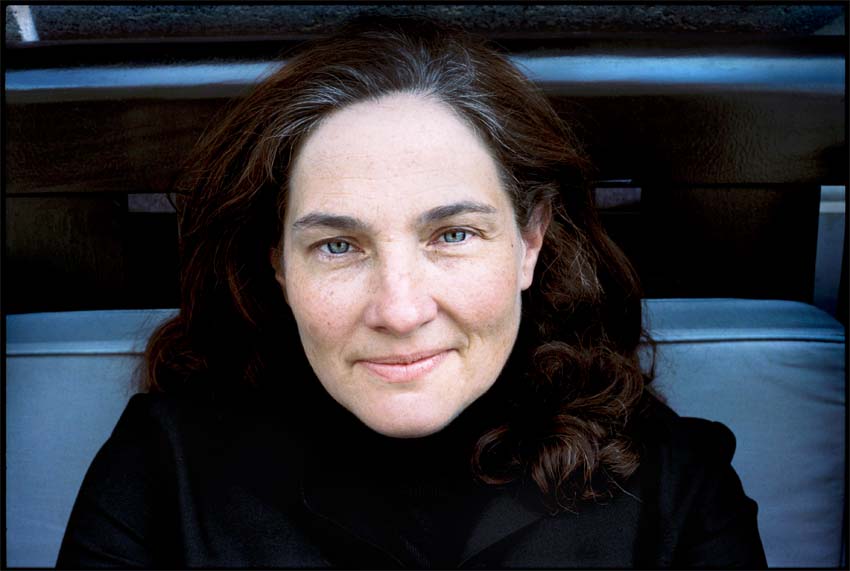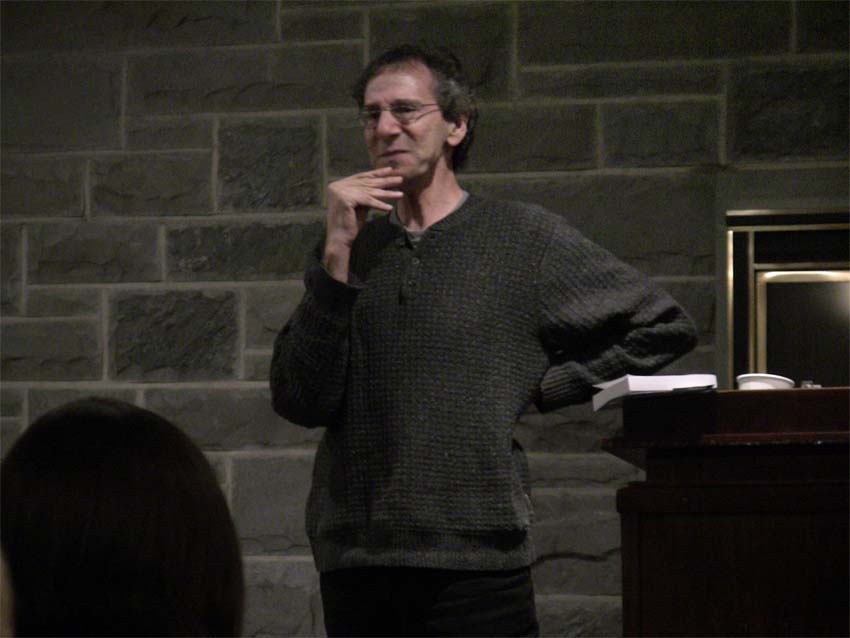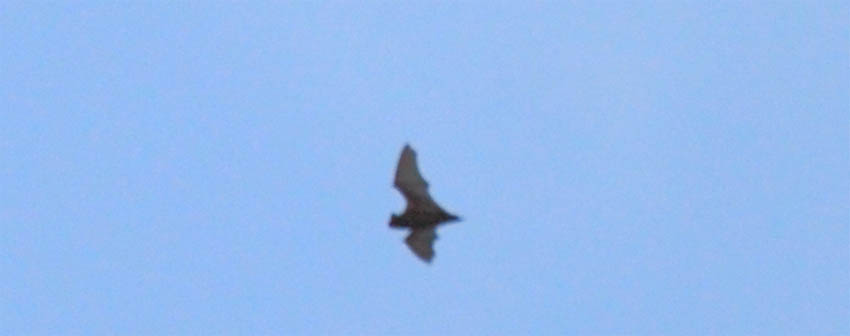Andrea Arnold is the co-writer and director of Wuthering Heights, which opens on October 5 in select theaters.
Listen: Play in new window | Download
Condition of Mr. Segundo: Wondering if his creator is Heathcliff.
Guest: Andrea Arnold
Subjects Discussed: Characters defined by how they observe things, working with moths, Yorkshire insect wranglers, how to get animals to behave on camera, improvisational and Method-acting sheep, Buñuel’s Land Without Bread, audiences who believe that Arnold killed real sheep, film disclaimers about no animals harmed during the course of production, talking with farmers to get historical details right, how imagination informs more effectively than the facts, avoiding plastic walls for old sets, working with production designer Helen Scott, being upset when something isn’t real, the virtues of filming in a remote place, staying in a local village, getting used to a temporary life without phones, elevation as a geographical identifier as Arnold’s films, putting a camera in a place where a human can exist, Arnold’s dislike of the dolly and the Steadicam, why there weren’t as many wide shots in Wuthering Heights, Lindsay Anderson’s if…, cinematographer Robbie Ryan’s very sturdy hands, working without jibs and gimbals, the visual authenticity of natural human movement, Robbie Ryan running down four or five flights backwards with a camera, giving a very lovely grip named Sam something to do, reading Emily Bronte when very young, the decision to add the line “Fuck you, all you cunts” in Wuthering Heights, respect for Emily Bronte, working with non-actors, being too faithful to a literary classic, finding new takes on Heathcliff, why most literary adaptations play it safe, and literary reverence.
EXCERPT FROM SHOW:
Correspondent: So there’s one really intriguing quality about your films that I have observed. Your characters are often defined by how they observe things. Of course, the obvious explicit example is Red Room, because we have closed circuit cameras in there. But we do see that in Wuthering Heights quite a bit. Often through slats. Often through little cracks. And I’m wondering. Why are you so interested in this idea of defining characters by how they look at things? Is this a way to offer a vicarious experience to the viewer? Do you feel that looking at things or what people decide to see is of greater import or greater revelation than, say, how they perform and how they act?
Arnold: Well, I don’t know the answer to that question really. Because I think when I’m writing, I don’t really think that lucidly about what I’m writing and how I’m writing it. But now that you’ve just said that to me, I realize actually what you just said is true. But actually if you’d ask me to define how I do things, I would never have said that I’m doing that. But now that you’ve just told me, I realize you’re right. And I think that I write quite instinctively. And for some reason I seem to be doing that. I’m always picking. I’ve only ever done one film where I told it from two people’s point of views, where I switch from one person to another. Most of the films I’ve done so far have been telling it from one person’s point of view. And for some reason, that feels like the right thing to do for me. It’s like I feel able to get into one person’s head. I find it more difficult to get into lots of people’s heads. Though maybe, just because I’m telling the stories from that person’s point of view and I’m going along with them and thinking about how they’re thinking and I’m trying to get inside their head, I think that may be why looking at the world from their point of view, I’m trying to get inside their head and work out how they’re feeling. Does that make sense?
Correspondent: It makes sense. It makes me ask at what point do you decide, “Oh, the camera must see what they’re seeing.” It seems to me that this would be a fairly late process in the planning. Is that safe to say? I mean, when do you think about this? Do you think about this during the act of writing the script or anything?
Arnold: I think I do think about it when I’m writing. Because I’m thinking constantly about what they’re looking at and what they’re doing and what they’re feeling. And I think that a lot of what ends up in the film is things that I’ve put on the page. I mean, even in Wuthering Heights, people say to me, “Was that in the script?” And actually no. Although sometimes, with the moths, they were in the script. The moths are in the script. The beetles aren’t in the script, but the moths are.
Correspondent: What do you do to get an insect wrangler, by the way? (laughs) I was curious about that. How do you find the moth expert among the moors and all that?
Arnold: Those moths, actually, were proper Yorkshire moths.
Correspondent: Oh they were?
Arnold: They were proper. The moths may be quite actually. Because we got moths from a man who dealt in Yorkshire moths. A Yorkshire moth expert, I guess.
Correspondent: A specialist. (laughs) There are moth specialists. I did not know.
Arnold: Yeah, there are.
Correspondent: How do you get a moth to behave on camera? I mean, you know they say the thing about children and animals.
Arnold: Moths don’t take directions. No, they don’t. You have to let them be themselves. But he gave us these moths which were in little capsules. And when we let them out, some of them died and it actually made me cry.
Correspondent: Oh.
Arnold: I guess they do die. I mean, moths don’t last very longer than butterflies, do they?
Correspondent: Don’t we all, right?
Arnold: (laughs) Yes.
Correspondent: Well, that’s interesting that you would feel such sympathy for the moths when this film also depicts a lot of sheep and a lot of rabbits — simulated, I would suspect. I don’t think this was a Buñuel Land Without Bread situation on your part. But I mean, there is quite a lot of animal violence. And I’m wondering what you also did to get that looking as real as it did and why you felt compelled to include this as a representative rough element of this great frontier of the 19th century.
Arnold: Well, I guess it was dealing with animals and having animals on the farm living and dying would be part of life. And it’s part of our life now. Only it’s a hidden part of our lives. In fact, it’s a far worse thing now in life. Because it’s all behind doors and we all pretend it doesn’t happen. And animals are factory farmed in far worse ways. They’re not roaming free and then getting slaughtered at the end of their lives. They’re living in sheds and having pretty closed out lives. So it happens all the time now and then. And I just wanted to represent that accurately. I mean, we have managed to obviously do a good job. Because I get people saying — I think at Sundance, someone said to me — somebody came after and said, “Oh, I feel so sorry for that sheep, you know.” And I said, “Why?” And he said, “You killed the sheep.” And I said, “No, we didn’t kill the sheep.”
Correspondent: And he’s no doubt saying this after having a lamb chop dinner, right? (laughs)
Arnold: Well, exactly. But of course we didn’t kill the sheep. And in actual fact, I was so worried about that sheep when we did that scene. I was more worried about that sheep than anyone. I mean, we had a vet there and we had a farmer there who owned the sheep. But that sheep, I have to tell you, was the most amazing sheep.
Correspondent: Oh yeah? What made it amazing?
Arnold: He was so amazing, that sheep. Because he was so calm. He wasn’t frightened. And he did this thing. In the film, you’ll see he’s trembling. It looks like you’ve done something really bad to him. He just started doing that. It was like he knew that he needed to look. I really don’t know.
Correspondent: Really? Unrehearsed?
Arnold: Unrehearsed.
Correspondent: Improvisational sheep! Wow!
Arnold: And it trotted off. And I kept saying to the farmer, “Are you sure the sheep’s alright?” He said, “The sheep’s fine.” And actually he went off, trotted back to the herd no problem. That sheep was amazing.
Correspondent: No ague or anything?
Arnold: No what?
Correspondent: No ague or anything?
Arnold: No what?
Correspondent: No tremors or anything like that? No dizziness?
Arnold: Nope. No, no, no. It seemed completely fine.
Correspondent: Wow. There are Method acting sheep.
Arnold: Honestly, that sheep. We couldn’t have picked a better sheep. Even when we were carrying it, it was just so calm. It didn’t seem frightened. It seemed completely fine. But of course we didn’t harm the sheep. In fact, I was very very concerned about the sheep and made sure he was completely fine. But, no, we didn’t harm anything. I mean, we make it look bad. But of course no. And I’m a vegetarian and animal complete.
Correspondent: Well, we talked about moths dying. Is there anything equivalent to the SPCA* in the British Isles that you’d have to get the endorsement from?
Arnold: Oh yeah.
Correspondent: I didn’t see any endorsement on the film or anything like that.
Arnold: Well, we had animal handlers there all the time.
Correspondent: Okay. You don’t need to have the designated stamp on the credits like we do here.
Arnold: We have the thing. “No animals were harmed.” I mean, that’s what you have to have. And you have to have people who are there who endorse that and who sign something to say that. So we had all that. We had everything that you’re supposed to have.
Correspondent: So you wanted to include these animals dying on film — simulated, of course — in the name of historical accuracy. I’m wondering what research you did to know how people lived during that time. I know that there were depilatory restrictions in place. I’m curious. What did you do to know that this is actually true? Or was this largely instinctive? Was this largely trusting your gut? Was this largely saying, “Okay, well, if we don’t have television, radios, and smartphones, and we’re just living on a farm, we’re just going to live like this”?
Arnold: Well, partly imagining what it would be like to live on the farm. Partly I spoke to farmers. I talked with some of the farmers up in Yorkshire about how things would have been. And they had a lot of people up in that area who had been up there for generations, and had actually a lot of information. So I went down to a place where people dealt with animals and spoke to a lot of farmers down there. I talked to people. So I did partly talk to people. Part imagination, partly what they were telling me. For example, the way they put their foot on the sheep and stuff like that. That was all told to me, the way they did that. You know, I researched all those things. About how they would handle the sheep and stuff like that. How they would carry it.
Correspondent: Do you feel that imagining what a situation is like is going to carry more truth on cinema than, say, sticking with the hard facts or the hard details? Or going by the letter of what the Yorkshire farmers tell you?
Arnold: I mean, I think I’m somebody who, if I hear something and I believe it to be the truth and they’ve told me something truthful, I will try to hold on to that as best I can. And I incorporate that into what I’m doing. So if they’ve told me something and I’ve heard it a couple of times from the right kind of people, then I think I would do my utmost to make sure that I represent that as accurately as they’ve told me. I think I’m somebody who does actually care about those things. I mean, when I’m talking about using my imagination, I’m talking about using my imagination more to do with the emotion or to do with the way that people are interacting with each other. I’m not looking to deal with practical facts. If I hear something, it’s done a certain way. Also I have a designer I work with and she’s very like that too. And even the house which we restored. Because it was quite run down.
Correspondent: Oh, interesting.
Arnold: We restored it using all the traditional methods. And so all the people that worked on the house used old skills in order to restore it. We didn’t put plastic up that looks like thatchery. We put proper thatch up. We restored the walls to the paths they would have used. We used the right kind of wood.
Correspondent: The stone wall on the outside. Was that touched up? Or built by the cast perhaps?
Arnold: Those stone walls were mostly there. The dry stone walls, that’s all over Yorkshire. So all the people working on the house before we started filming there, they were all using old skills which they all really, really enjoyed.
* — Our Correspondent mistakenly referred to the SPCA when he clearly meant the American Humane Association, which has been adding disclaimers about animals to movies since 1940.
The Bat Segundo Show #488: Andrea Arnold (Download MP3)




